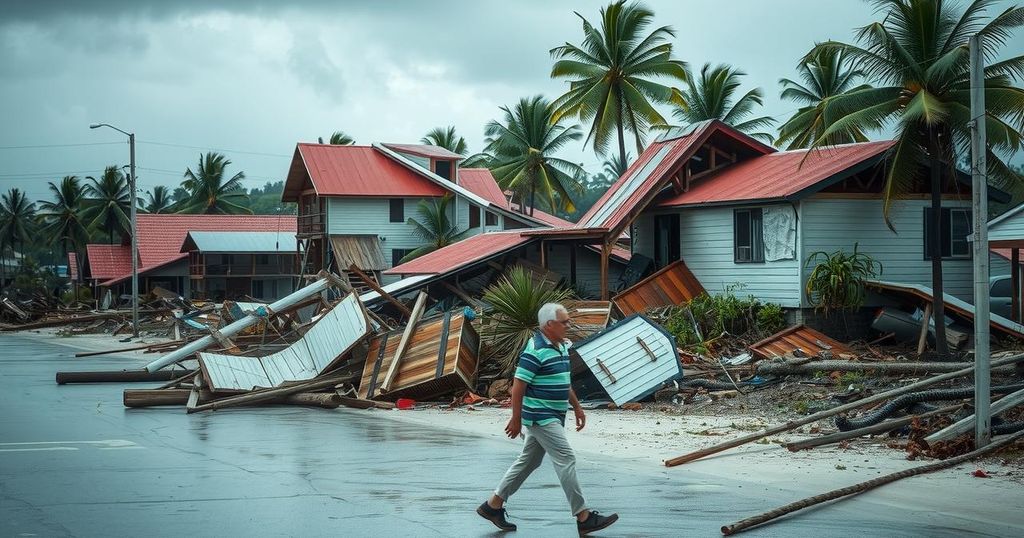World news
AFP, AFRICA, AP, BFMTV, BRUNO GARCIA, CAR, CHI, CIVIL SECURITY, CNN, CNN NEWSOURCE, EMERGENCY RESPONSE, EUROPE, FRANCE, GARCIA, GETTY, GETTY IMAGES, HOTEL CARIBOU, INDIAN OCEAN, KARIHANI, KWEZI, MADAGASCAR, MAMOUDZOU, MAYOTTE, MET, METEO - FRANCE, MOHAMED ISHMAEL, MOZAMBIQUE, NATURAL DISASTER, NATURAL DISASTERS, REUTERS, SEC, UIISC, VIOLENCE, WASHINGTON DC, WEATHER SERVICE
Amira Khan
0 Comments
Devastation in Mayotte: Cyclone Chido Leaves Catastrophic Impact
A category 4 cyclone, Chido, has devastated Mayotte, leading to an apocalyptic scene, with local officials estimating that hundreds, possibly thousands, may have perished. The region’s challenges, exacerbated by socioeconomic crises and a large undocumented population, have complicated rescue operations.
A devastating cyclone named Chido struck the French territory of Mayotte on December 15, yielding catastrophic damage and leaving residents traumatized. Described by locals as resembling the aftermath of an atomic bomb, the cyclone—recognized as a category 4 storm—hit Mayotte with winds surpassing 220 km/h (136 mph), causing severe destruction in neighborhoods, on critical infrastructure, and to local establishments. Emergency responses have been challenged by the substantial damage to travel routes and the region’s unique demographic situation, including many undocumented migrants.
Emergency efforts are ongoing, with reports indicating at least 14 confirmed fatalities. However, local officials caution that the true death toll could reach hundreds or even thousands, as communication systems remain disrupted. Rescuers continue to face significant obstacles, further complicated by the geographical isolation of many affected areas. Overall, the cyclone caused extensive harm to the informal housing sectors, where many of the island’s population resides. This region, home to around 300,000 people, had already been dealing with profound socioeconomic challenges and a burgeoning migration crisis; the cyclone’s aftermath could exacerbate these existing vulnerabilities.
Mayotte, situated in the Indian Ocean, is a French overseas territory just west of Madagascar. It consists of two main islands and is characterized by significant economic hardship and a high population of undocumented migrants. The cyclone strike represents the most destructive weather event to impact the islands in over 90 years, with meteorological assessments linking intensifying storm activity to climate change. Over the years, the region has witnessed several powerful cyclones that have exacerbated existing humanitarian challenges.
In summary, Cyclone Chido’s destructive path through Mayotte has prompted immediate discussions regarding the future resilience of this vulnerable territory. With fatalities expected to climb, it is imperative for regional and national authorities to address not only the immediate humanitarian needs but also to consider long-term strategies to mitigate the effects of climate change and improve infrastructural integrity. The urgency of response efforts highlights the critical importance of global cooperation in disaster preparedness and recovery.
Original Source: www.accuweather.com




Post Comment